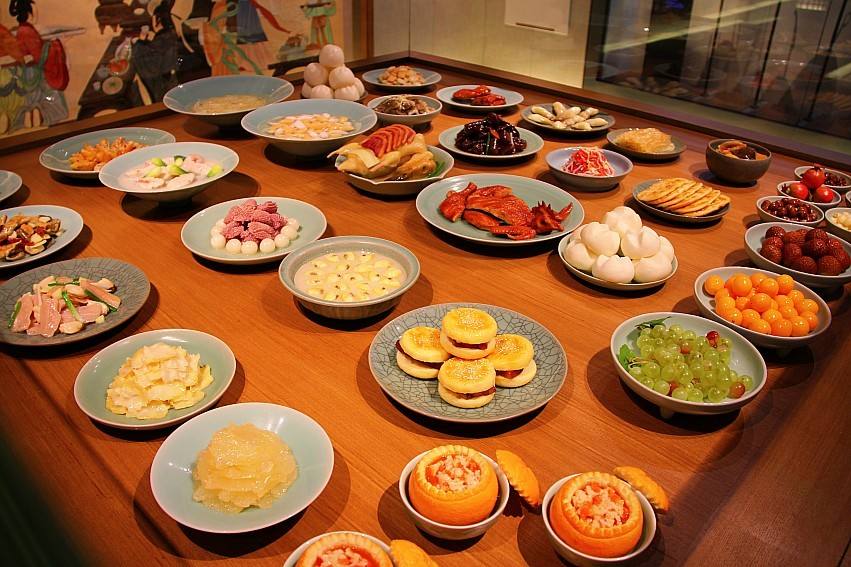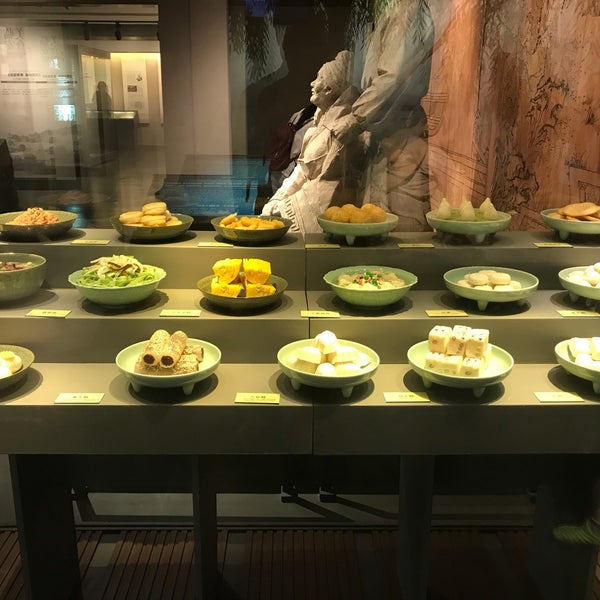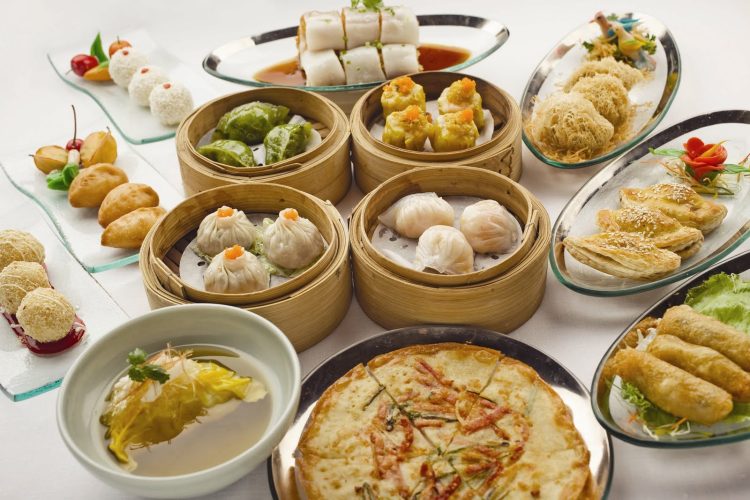Hangzhou, known as “heaven on Earth”, has been a treasure written by literati since ancient times. She not only attracts the world’s attention with its beautiful landscape and profound cultural heritage, but also with its unique food culture, so that countless diners fall for it. Here, every dish is like a beautiful poem, and every bite is an affectionate confession to the city.
West Lake Water Shield: Green Poems in blue waves
When it comes to Hangzhou cuisine, we have to mention the green West Lake Water Shield. This aquatic vegetable growing in the blue waves of the West Lake has been a shining pearl in Hangzhou cuisine since ancient times. Its leaves are green to drop, the taste is smooth and refreshing, with a light fragrance, as if telling the tenderness and poetry of the West Lake.
As early as the Southern Song Dynasty, West Lake water Shield had become a treasure in the royal palace. Today, it still maintains its freshness and elegance, and has become a frequent guest on the dinner table of Hangzhou people. Whether it is cold mix, fried food or soup, West Lake Water Shield can bring its unique taste and flavor into full play. Among them, fried shrimps with water shield is the most classic. The tender shrimps meet the green water shield in the pot, and the fresh aroma of shrimps blends with the fresh fragrance of the water shield, forming a delicious food with excellent color and fragrance. Every taste, people can feel the fresh and elegant West Lake.
Second, Hangzhou pickles: the taste memory of the ancient tradition
Hangzhou pickles, is the crystallization of Hangzhou people’s wisdom, is also an important part of Hangzhou food culture. It uses the traditional pickling process to perfectly retain the nutrients and unique flavor of vegetables, and becomes a delicious food with strong local characteristics.
There are many kinds of pickles in Hangzhou, including pickled radish, pickled cucumber, pickled cabbage and so on. These pickles are crunchy and flavourful, with a distinctive sour and salty flavor. Not only can they be used as an appetizer, but they can also be cooked with other ingredients to add a unique flavor to a dish. Whether it is simple pickled radish bibimbap or complex pickled vegetable stew, people can feel the unique charm of Hangzhou pickled vegetables.
The pickling technology of Hangzhou pickles has a long history and has been passed down from generation to generation. It uses the natural fermentation way, the sugar in vegetables into lactic acid and acetic acid and other beneficial substances, not only taste delicious, but also has a certain health care role. Each bite is a taste memory of the ancient tradition and a deep tribute to Hangzhou’s culinary culture.

Third, Tonglu chicken blood stone ear: rare treasure in the mountains
Tonglu area of Hangzhou, with its unique geographical environment and climatic conditions, has bred a rare food material – Tonglu chicken blood stone ear. This food, which grows on the stone walls in the mountains and forests, is named for its shape like ears and its color is bright red like chicken blood. It not only has a unique taste, but also has high nutritional value, and is known as the “king of mountain treasures”.
Tonglu chicken blood stone ear taste fresh and smooth, with a special fragrance. It can be eaten in a variety of ways, such as stewed soup, stir-fried vegetables, and cold mix. Among them, stewed chicken with stone ears is the most classic. This dish perfectly combines the fragrance of stone ears with the delicacy of chicken, and the soup is rich and mellow, and it is intoxicating. With each bite, you can feel the unique flavor of the mountain delicacies and the gifts of nature.
The growth environment of Tonglu chicken blood stone ear is unique, difficult to pick, so the price is expensive. However, its delicious taste and nutritional value make people flock to it. Each bite is a tribute to the delicacies of the mountains and a reverence for nature.
Fourth, the diversity and innovation of Hangzhou cuisine
The variety of Hangzhou cuisine is one of its unique charms. From traditional Hangzhou cuisine to modern creative dishes, from street food to high-end restaurants, Hangzhou has a wide variety of cuisines that cater to different groups of people. Whether it is the pursuit of exquisite delicious diners, or love the local flavor of gluttons, you can find here to satisfy their taste buds.
At the same time, Hangzhou’s cuisine is also full of innovation. On the basis of inheriting traditional skills, many young chefs continue to explore and innovate, combining traditional dishes with modern cooking techniques to launch a series of amazing new cuisines. These new cuisines not only retain the essence of traditional dishes, but also incorporate modern elements and creative ideas, so that people can feel the infinite possibilities of food in taste.
The dish “West Lake Longjing Shrimp” is an innovative interpretation of traditional food. It perfectly combines the fragrance of Longjing tea with the freshness of shrimp, forming a delicious and nutritious dish. Each bite of taste, people can feel the fragrance of Longjing tea and the delicious shrimp on the tongue interwoven wonderful experience.
- The uniqueness of Hangzhou cuisine
The uniqueness of Hangzhou cuisine is that it combines the freshness of Jiangnan water towns with the depth of human history. Hangzhou is located in the Jiangnan water town, humid climate, rich in products, which provides unique conditions for Hangzhou cuisine. At the same time, Hangzhou is a famous cultural city with a long history, and its humanistic history has also injected profound cultural deposits into Hangzhou cuisine.
In the selection of ingredients, Hangzhou cuisine pays attention to the freshness and green of the ingredients. Many of the ingredients come from local landscapes and fields, which are green and pollution-free. In terms of cooking skills, Hangzhou cuisine pays attention to maintaining the original flavor and nutrition of ingredients. Whether it is steamed, braised or fried, you can maximize the taste and flavor of the ingredients.
Hangzhou cuisine also pays attention to the art and visual presentation of dishes. Each dish is like a fine work of art, allowing people to enjoy the visual feast while tasting the food. This reverence and pursuit of food has made Hangzhou cuisine famous both in China and around the world.

Sixth, the cultural connotation of Hangzhou cuisine
Hangzhou cuisine is not only a taste enjoyment, but also a cultural inheritance and experience. It contains the Hangzhou people’s love for life and the pursuit of food, but also reflects the history and cultural heritage of Hangzhou.
In Hangzhou, food and culture go hand in hand. Many cuisines are closely related to Hangzhou’s history and culture. For example, the dish “Dongpo meat” has an indissoluble relationship with Su Dongpo, a writer in the Northern Song Dynasty. It is said that Su Dongpo liked this dish very much during his tenure in Hangzhou, so later generations named it “Dongpo meat”. This dish not only tastes delicious, but also symbolizes the love of life and the pursuit of food.
In addition, Hangzhou’s cuisine also incorporates many local cultural elements. For example, the dish “West Lake Fish in Vinegar” blends the scenery of the lake and the emotions of the Hangzhou people. This dish uses fresh grass carp from the West Lake as raw material. After careful cooking, it tastes fresh, sweet and sour. With each bite, you can feel the charm of West Lake and the hospitality of Hangzhou people.
Tasting Hangzhou is a journey of taste buds across time and space. Here, we can not only taste the classic food such as traditional Hangzhou cuisine and Southern Song court cuisine, but also try the new style food that combines modern creativity and international elements. These delicacies not only satisfied our appetite, but also let us feel the unique charm and cultural heritage of Hangzhou in our taste. Let’s embark on this journey of taste buds and feel the infinite charm of Hangzhou cuisine!





















